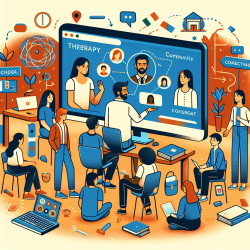Welcome to the World of Retrotransposons!
As a Special Education Director, you're always on the lookout for new insights that can help you better support students with diverse needs. Today, we're diving into a fascinating area of research that could have significant implications for understanding and addressing neurodegenerative diseases: retrotransposons.
What Are Retrotransposons?
Retrotransposons are mobile genetic elements that make up nearly half of the human genome. They can move around within the genome, and while some have beneficial functions, others can contribute to diseases, including neurodegenerative disorders.
The Connection to Neurodegenerative Diseases
Recent research, such as the study titled Diseases of the nERVous system: retrotransposon activity in neurodegenerative disease, highlights the role of retrotransposons in diseases like Alzheimer's, Multiple Sclerosis (MS), and Amyotrophic Lateral Sclerosis (ALS).
Key Findings from the Research
- Alzheimer's Disease: Retrotransposons may contribute to neuroinflammation and neuronal damage, potentially exacerbating the disease.
- Multiple Sclerosis: Retrotransposons, particularly human endogenous retroviruses (HERVs), are linked to inflammation and demyelination in MS.
- Amyotrophic Lateral Sclerosis: Elevated levels of retrotransposons have been observed in ALS, suggesting a potential role in motor neuron degeneration.
Implications for Practitioners
Understanding the role of retrotransposons in neurodegenerative diseases opens up new avenues for research and potential therapeutic interventions. Here are some ways practitioners can leverage this knowledge:
- Stay Informed: Keep up with the latest research on retrotransposons and neurodegenerative diseases to inform your practice.
- Collaborate with Researchers: Engage with researchers to explore potential interventions targeting retrotransposon activity.
- Advocate for Students: Use your knowledge to advocate for students with neurodegenerative conditions, ensuring they receive the support they need.
Encouraging Further Research
The field of retrotransposons is still evolving, and there's much more to learn. Encourage your colleagues and the broader educational community to explore this area further. By staying curious and open to new ideas, we can better support our students and contribute to the broader understanding of neurodegenerative diseases.
To read the original research paper, please follow this link: Diseases of the nERVous system: retrotransposon activity in neurodegenerative disease.










